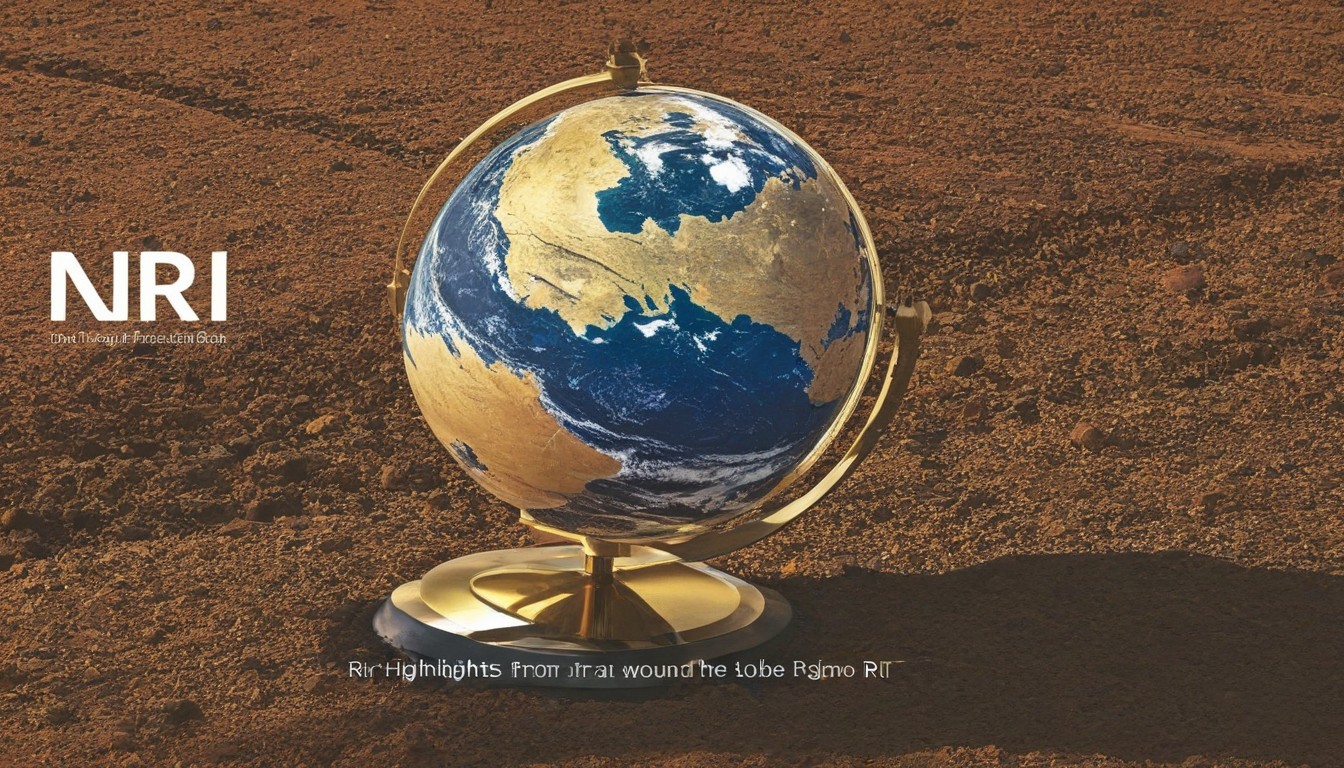Bridging the Chasm: Navigating Tradition and Modernity – Insights from Trailblazing NRIs
A Bridge Between Worlds: Navigating Tradition and Modernity – Insights from NRIsIntroduction
As the world becomes more interconnected, the collision between tradition and modernity has become an increasingly compelling subject of exploration. Nowhere is this clash more apparent than among Non-Resident Indians (NRIs), individuals who have left their homeland to settle in foreign countries while still maintaining strong ties to their Indian roots. NRIs are a fascinating group whose experiences offer valuable insights into how one can navigate the delicate balance between tradition and modernity.
Definition of NRIs (Non-Resident Indians)
Non-Resident Indians, or NRIs, are individuals of Indian origin who reside outside of India. Many NRIs have emigrated for various reasons such as employment opportunities, higher education, or seeking a better standard of living. Despite living far away from their homeland, NRIs often maintain close connections with India through frequent visits, family ties, and active participation in Indian cultural and social events in their host countries
.Importance of Bridging Tradition and Modernity
The need to bridge tradition and modernity is crucial for NRIs as they face a unique set of challenges that arise from straddling two distinct worlds. On one hand, they inherit deep-rooted cultural traditions that have been passed down through generations. These traditions encompass customs, rituals, values, familial responsibilities, and religious practices that form an integral part of Indian culture.
On the other hand, as global citizens residing in technologically advanced societies influenced by Western values and norms, NRIs encounter new perspectives that challenge traditional beliefs. They navigate a world driven by individualism where personal aspirations often take precedence over collective identities
Overview of the Topic and Its Relevance
In this article, we will delve into the intricacies of bridging tradition and modernity through the lens of NRIs. We will explore how NRIs grapple with the tension between preserving their cultural heritage and embracing the opportunities afforded by modern living. The experiences of NRIs offer valuable insights for individuals who find themselves caught between tradition and progress, helping us understand how to strike a harmonious balance.
Through an exploration of various aspects such as cultural identity crisis, generation gap, negotiation of values, and successful balancing acts, we will shed light on how NRIs navigate this bridge between worlds. By doing so, we hope to provide readers with a deeper understanding of the challenges faced by NRIs while offering practical insights that can be applied in diverse contexts.

Understanding Tradition and Modernity
Exploring the Concept of Tradition in Indian Culture
Indian culture is a rich tapestry woven with centuries-old traditions that have been passed down from generation to generation. These traditions form the very essence of Indian society, providing a sense of identity, belonging, and continuity. Customs, rituals, and values play a pivotal role in preserving this cultural heritage.
They serve as guiding principles that shape individuals’ lives and define their interactions within the community. India’s traditions encompass diverse aspects of life including celebrations, ceremonies, and daily practices.
Festivals like Diwali, Holi, and Navratri are vibrant showcases of tradition where customs are observed with zeal. Rituals such as religious ceremonies or auspicious events like weddings are meticulously performed to maintain cultural sanctity.
Moreover, traditional values deeply influence the behavior and conduct of individuals in Indian society. Respect for elders, strong family ties, obedience to parents’ wishes – these principles underscore the fabric of traditional Indian culture.
Role of Family Culture and Religion
Family holds immense importance in Indian culture; it is considered the cornerstone upon which society is built. The concept of joint families prevails where multiple generations live together under one roof.
This system fosters communal living while strengthening familial bonds. Religion also plays an integral role in shaping tradition in India.
With a diverse range of religions coexisting harmoniously – Hinduism, Islam, Christianity among others – religion acts as a unifying force while contributing unique practices to the cultural landscape. The community forms another pillar that upholds tradition within Indian society.
Communities provide support networks where customs are shared and celebrated collectively. They serve as social institutions for guidance throughout life’s milestones – from birth to marriage to death.
Embracing Modernity in a Globalized World
In recent decades, India has witnessed a rapid transformation fueled by globalization, technology, and evolving societal norms. The advent of the internet, social media platforms, and global connectivity has brought the world to Indian doorsteps, challenging long-held traditions.
Modern India reflects a dynamic amalgamation of traditional values and emerging individualistic ideologies. The influence of technology is undeniable.
Younger generations are seamlessly integrating smartphones, social media platforms, and digital communication into their lives. This shift has redefined interpersonal relationships and modes of self-expression.
Simultaneously, globalization has exposed Indians to diverse cultures and perspectives from around the globe. As societal norms evolve in response to these influences, there is a growing emphasis on individualism and personal freedom.
Young Indians are increasingly exploring careers beyond traditional paths, advocating for gender equality, and challenging age-old stereotypes. This blend of tradition with modernity characterizes contemporary India as it navigates through the complexities of a rapidly changing world while staying rooted in its cultural heritage.
Challenges Faced by NRIs in Navigating Tradition and Modernity
Cultural Identity Crisis: Struggling to Balance Two Worlds
Living as an NRI often means straddling the line between two distinct cultures, leading to a complex cultural identity crisis. NRIs face the challenge of reconciling their traditional upbringing with their desire for a modern lifestyle.
This struggle is rooted in the clash between deeply ingrained values, customs, and beliefs of their Indian heritage and the allure of Western ideals and individualistic values that they encounter while living abroad. Balancing these two worlds can be emotionally taxing as NRIs grapple with questions of who they are and where they belong.
Pressure to Conform to Societal Expectations While Living Abroad
When NRIs settle in foreign countries, societal expectations can become both a source of external pressure and internal conflict. On one hand, there is a longing to preserve cultural traditions and honor family values despite being far from home.
On the other hand, there is an undeniable influence from the host country’s culture that tempts NRIs to assimilate fully into their new surroundings. This creates a delicate balancing act where NRIs find themselves torn between preserving their Indian roots and adapting to the new world around them.
Generation Gap: Navigating Differences with Parents and Elders
Another significant challenge for NRIs navigating tradition and modernity lies within intergenerational relationships with parents and elders. While younger NRIs embrace modern lifestyles influenced by Western culture, their parents may adhere strongly to traditional values instilled in them by Indian society.
This divergence can create tension within families as differing perspectives clash on matters such as relationships, marriage choices, career paths, or even daily practices like clothing or food choices. Bridging this generation gap requires open dialogue, understanding, empathy, and mutual respect to find common ground and maintain family harmony.

Insights from NRIs on Bridging the Gap
Preserving Traditions While Embracing Modernity
NRIs have developed various strategies to preserve their cultural identity while embracing the modern world. One such strategy is actively seeking out Indian communities abroad, engaging in cultural events, festivals, and religious ceremonies. This fosters a sense of belonging and provides opportunities to connect with fellow NRIs who share similar experiences.
Additionally, incorporating traditional practices into daily life helps maintain a connection to their roots. Whether it’s celebrating festivals, observing rituals, or preparing traditional meals, these conscious efforts allow NRIs to experience the best of both worlds.
Negotiating Conflicting Values Through Open Dialogue
To bridge the gap between tradition-oriented parents and modern-minded NRIs, open dialogue is paramount. Communication techniques like active listening and empathy are essential in understanding each other’s perspectives without judgment or criticism.
This approach allows for healthy discussions on mutual expectations, compromises, and ways to respect both tradition and modernity simultaneously. Finding common ground often involves highlighting shared values and reinforcing the idea that adapting certain aspects of modern living doesn’t necessarily diminish the importance of traditional beliefs.
Success Stories of NRI Individuals or Communities in Balancing Tradition with Modernity
Examples of Successful Integration Without Compromising Culture
There are countless success stories among NRIs who have skillfully balanced tradition with modernity in their lives abroad. From entrepreneurs starting businesses that blend Indian traditions with contemporary aesthetics to community initiatives promoting cultural exchange while embracing progressive ideas – these individuals demonstrate that it is indeed possible to navigate both worlds harmoniously. Their achievements serve as inspiration for others facing similar challenges, reminding them that preserving one’s culture does not hinder personal growth or success in a globalized world.
Conclusion:
As NRIs navigate the complex terrain between tradition and modernity, their struggles are real, but so are their triumphs. By embracing open dialogue, actively preserving cultural traditions while appreciating the benefits of a modern lifestyle, and finding common ground within intergenerational relationships, NRIs can bridge the gap and create a harmonious balance.
These courageous individuals exemplify the resilience of human adaptability and showcase how cultural heritage can flourish alongside progressive values. With determination and understanding, NRIs pave the way for a future where traditional roots remain strong while embracing the best of what the modern world has to offer.











